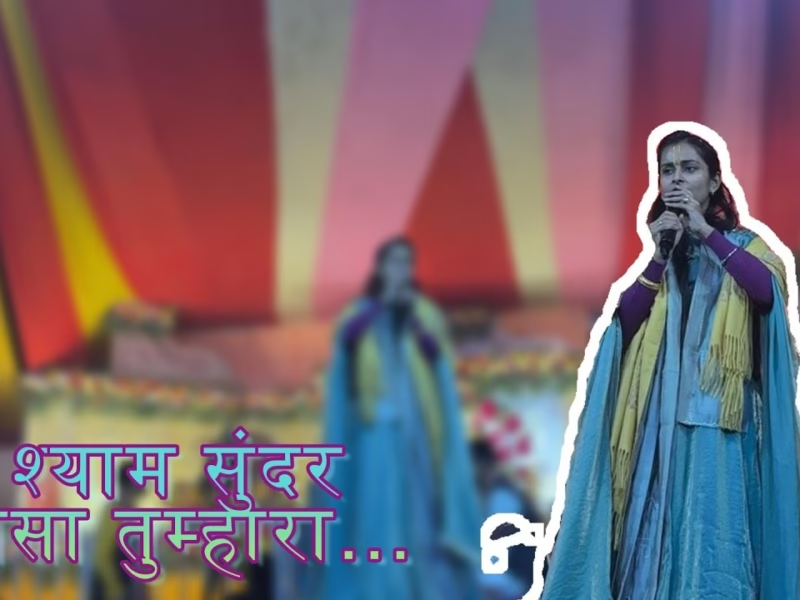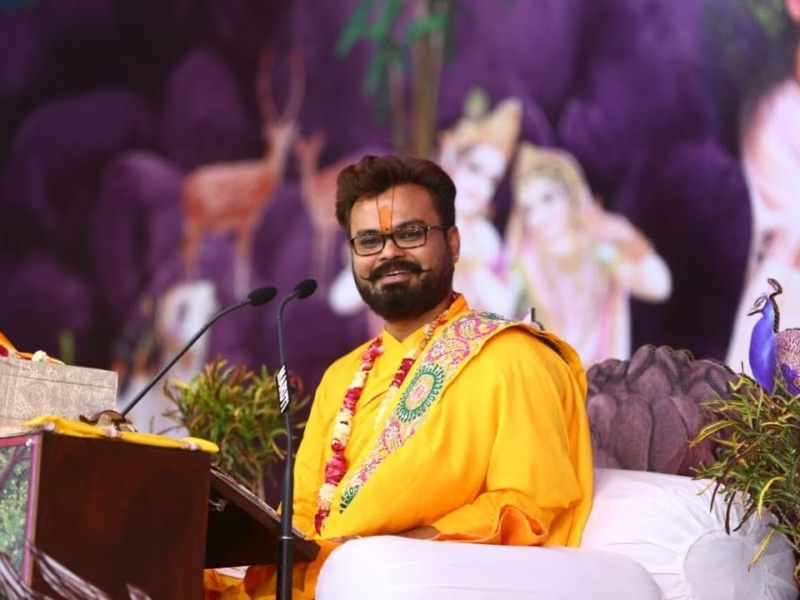Contents
Introduction & Spiritual Essence
Nestled on an island between the Cauvery and Kollidam rivers, the Sri Ranganatha Swamy Temple (locally known as Thiruvarangam) stands as the foremost among the 108 Divya Desams dedicated to Lord Vishnu. This is not merely a monument; it is a living spiritual universe, believed to be the Thiruvarangam (the celestial abode) of Vishnu in his Anantha Shayana form—eternally reclining on the cosmic serpent Adisesha.
The primary deity, Sri Ranganatha Swamy, is a Swayambhu (self-manifested) murti. Legend holds that the deity originally faced the south (Dakshina Mukha), a unique orientation that signifies protection and blessing for the devotees and the land of Lanka.
Phalaśruti: The Spiritual Benefits
Why do millions undertake this pilgrimage annually? According to the Sriranga Mahathmiyam, visiting this temple offers profound spiritual merit:
- Ancestral Liberation: It is believed that offering prayers here liberates ancestors from the cycle of rebirth, specifically cleansing ancestral karma.
- Wealth and Prosperity: As the Nitya Kalyana Perumal, devotees worship here to remove financial obstacles and ensure household prosperity.
- Protection: Those seeking relief from Rahu-Ketu doshas and planetary afflictions find immense solace here.
Historical Origins & Scriptural Legend
The history of Sri Ranganatha Swamy Temple is a tapestry woven from divine myth and royal patronage.
Scriptural Legends
According to the Sriranga Mahathmiyam, the temple’s origin traces back to the Samudra Manthan (Churning of the Cosmic Ocean). Brahma received the Sriranga Vimanam (the celestial chariot of Vishnu) as a result of this churning. Later, King Dharma Varma of the Kosala dynasty was instructed to consecrate this deity facing south to bless his kingdom and the distant Lanka.
Architectural and Dynastic Evolution
The temple complex we see today is a result of centuries of contributions:
- Pallava Dynasty: Provided the initial foundation and early architectural elements.
- Chola Dynasty (10th Century): Expanded the temple significantly, adding the outer prakarams (enclosures).
- Vijayanagara Empire (14th–16th Century): The temple reached its zenith of grandeur during this period. Emperor Krishna Deva Raya is credited with building the magnificent Mandapas and the Ayiram Kaal Mandapam (Hall of 1000 Pillars). As per temple records, the Ramanuja (11th century) played a pivotal role in organizing the temple’s rituals and establishing the Thenkalai tradition of Sri Vaishnavism here.
Architectural Marvels
The temple is a masterpiece of Dravidian Architecture. It covers a staggering 155 acres (63 hectares), making it the largest functioning Hindu temple in the world by area.
The Structural Layout
The complex is enclosed by 7 concentric walls (Prakarams), with a total perimeter of 4,116 meters (approx. 13,500 feet). These walls define the sacred geometry of the temple, separating the public outer areas from the inner sanctums.
Notable Features
- Rajagopuram: The tallest tower, rising to 237 feet (72 meters) in 11 progressively smaller tiers.
- Hayagriva Mandapam (Hall of 1000 Pillars): Although it actually contains 953 granite pillars, this hall is a theatre of divine art. It features wildly rearing horses carrying riders, trampling tigers—a depiction of the Dashavatara and other mythological scenes. This was constructed during the Vijayanagara period.
- Sesha Mandapam: Located opposite the 1000-pillared hall, this mandapam is known for its intricate sculpture and carvings depicting the reclining form of Vishnu.
- Sanctum Sanctorum: The main deity (Ranganatha) is large, about 8 feet tall, reclining on Adisesha.












Darshan & Ritual Logistics (2026 Guide)
The temple follows the Thenkalai tradition, which dictates specific timings for rituals. Devotees can book sevas online through the official Tirumala Tirupati Devasthanams (TTD) style portal managed by the HR&CE department.
Daily Darshan Timings
| Session | Timing | Description |
|---|---|---|
| Morning | 6:00 AM – 12:00 PM | Includes Suprabhatam, Viswaroopa Darshanam, and general darshan. |
| Afternoon | 12:00 PM – 4:00 PM | Temple remains closed for deity rest (Thirumanjanam). |
| Evening | 4:00 PM – 8:30 PM | Reopening for evening darshan and rituals. |
| Night | 9:00 PM – 9:30 PM | Ekanta Seva (Closing ritual). |
Key Sevas & Booking
- Suprabhatam: The morning awakening ritual (Virtual participation available).
- Archana: Offering of flowers and mantras (can be performed daily).
- Abhishekam: Ritual bathing of the deity (Requires prior online booking).
Note: For 2026, the temple has introduced a token system for the famous “Dress Vaikasi” event.
2026 Major Festivals
- Panguni Uthiram (March–April): A 10-day festival celebrating the celestial wedding of Ranganatha and His consort.
- Aadi Brahmotsavam (July–August): The grand chariot festival (Rathotsavam) which draws massive crowds.
- Aippasi Pournami (October–November): Special Deepa Aradhana (light offerings).
- Margazhi Festival (December 2025 – January 2026): The 21-day extravaganza. Key dates for 2026: Dec 15, 2025 to Jan 14, 2026. This includes the famous Ther (Chariot) procession on Jan 12, 2026.
Practical Visitor Guidance
To ensure a peaceful darshan and respect for the sanctity of the temple, please adhere to the following guidelines.
Code of Conduct
- Dress Code: Strict traditional attire is required. Men must wear dhoti or pants with a formal shirt; women must wear saree, half-saree, or salwar kameez. Western clothing (jeans, shorts) is strictly prohibited.
- Photography: Photography is prohibited inside the inner sanctum (Sanctum Sanctorum) and the thousand-pillared hall to preserve the sacred atmosphere.
- Mobile Phones: Mandatory deposit in lockers at the entrance is required. Use of phones inside the temple is discouraged.
Crowd Management & Seasonal Advice
- Best Hours: The ideal time for a relaxed darshan is between 9:00 AM and 10:30 AM (after morning rituals) or between 6:00 PM and 7:00 PM.
- Summer (April–June): Trichy experiences high heat. Carry a water bottle (available inside), wear light cotton fabrics, and visit early morning.
- Monsoon (October–November): While pleasant, carry an umbrella as the complex is large and open.
- Accessibility: While the temple is ancient, ramps have been installed in major areas. However, the inner sanctum involves many steps. Wheelchairs are available at the Southern entrance (East Raja Veedhi).
Pilgrimage Connectivity
How to Reach
Air: The nearest airport is Trichy International Airport (TIR), located approximately 15 km from Srirangam. Taxis and airport buses are available to reach the temple.
Train: Srirangam Railway Station is the nearest halt, just 2 km from the temple. Major trains arriving at Tiruchirapalli Junction (TPJ) (8 km away) provide connecting links.
Road: Srirangam is well-connected via NH 81 and NH 38. Regular buses run from Chennai, Madurai, and Bangalore to the Trichy Central Bus Stand.
Nearby Sacred Sites (Pilgrimage Circuit)
- Uchipillayar Temple (Tiruchirapalli Rock Fort): Dedicated to Lord Ganesha, located 8 km away. The climb offers a panoramic view of the Srirangam island.
- Kallalagar Temple (Madurai): Approximately 140 km south. Often visited by devotees after Srirangam to complete the Vaishnava circuit.
- Samayapuram Mariamman Temple: Located 20 km from Srirangam, dedicated to Goddess Mariamman (a form of Shakti), ensuring a balanced spiritual journey.
Frequently Asked Questions (FAQ)
1. Is there a VIP Darshan entry available?
Yes, the temple offers a “Special Darshan” ticket (usually a nominal fee like ₹50) which allows devotees to bypass the general queue. VIP entry is strictly regulated and usually requires prior authorization.
2. How can I perform Abhishekam online?
You can book Sevas, including Abhishekam, through the official Tamil Nadu HR&CE website or the temple counter. For foreign devotees, the “Virtual Seva” option allows you to sponsor the ritual, and the temple administration will perform it on your behalf.
3. Is the temple open 24/7?
No, the temple follows specific timings. The inner sanctum is closed between 12:00 PM and 4:00 PM. However, the outer corridors and shops remain open. The temple closes fully after 10:00 PM.
4. What is the significance of the deity facing South?
Unlike most Vishnu temples where the deity faces East, Sri Ranganatha faces South. Legend states that King Dharma Varma consecrated the idol in this direction to bless King Vibhishana of Lanka, who was carrying the idol to his kingdom but had to stop at Srirangam.
5. Are non-Hindus allowed inside?
Like many active temples in Tamil Nadu, entry is restricted to those professing the Hindu faith. Non-Hindus may view the architecture from the outer corridors and gopurams but are not permitted into the inner sanctum. Please respect local customs.










